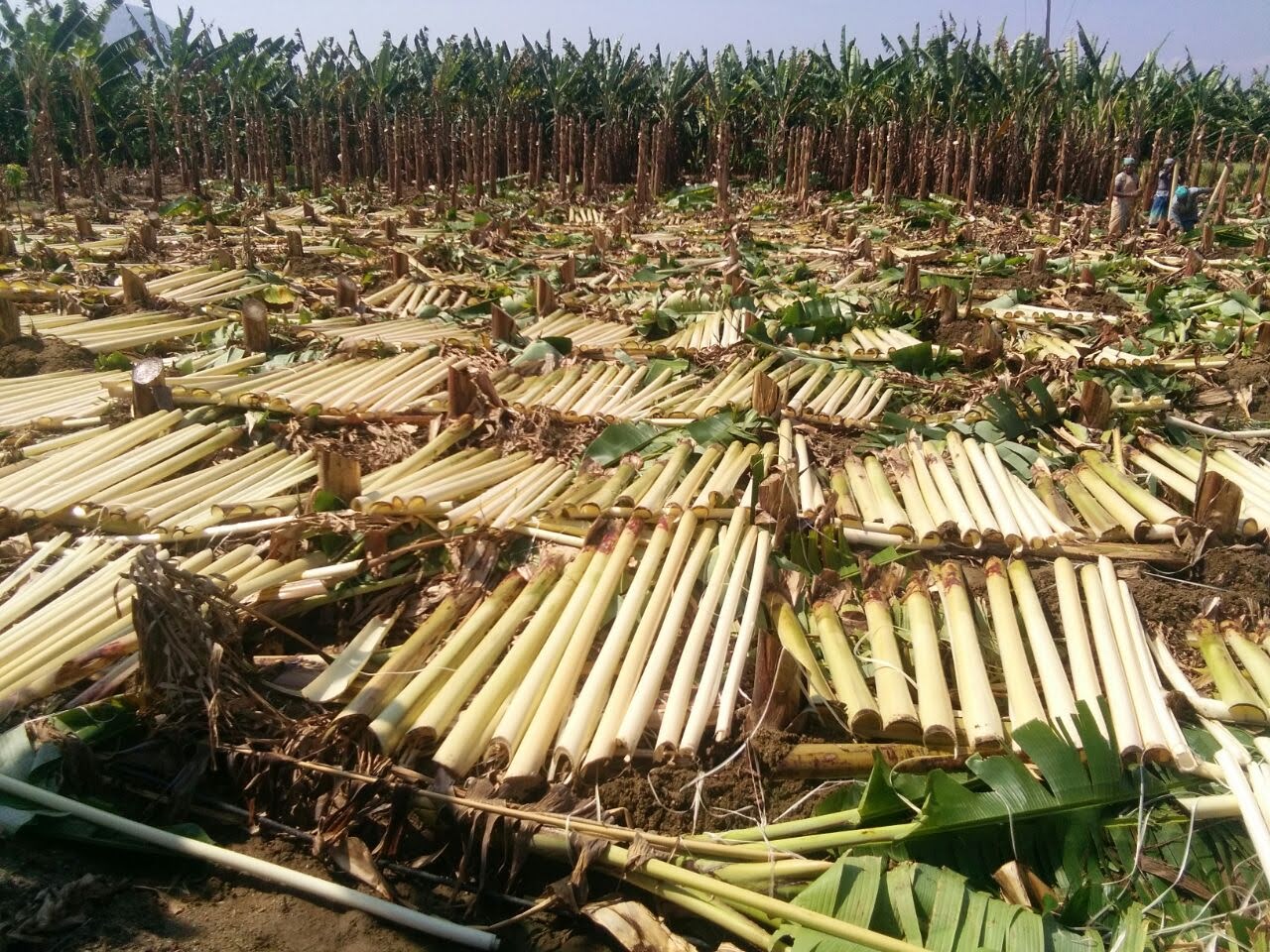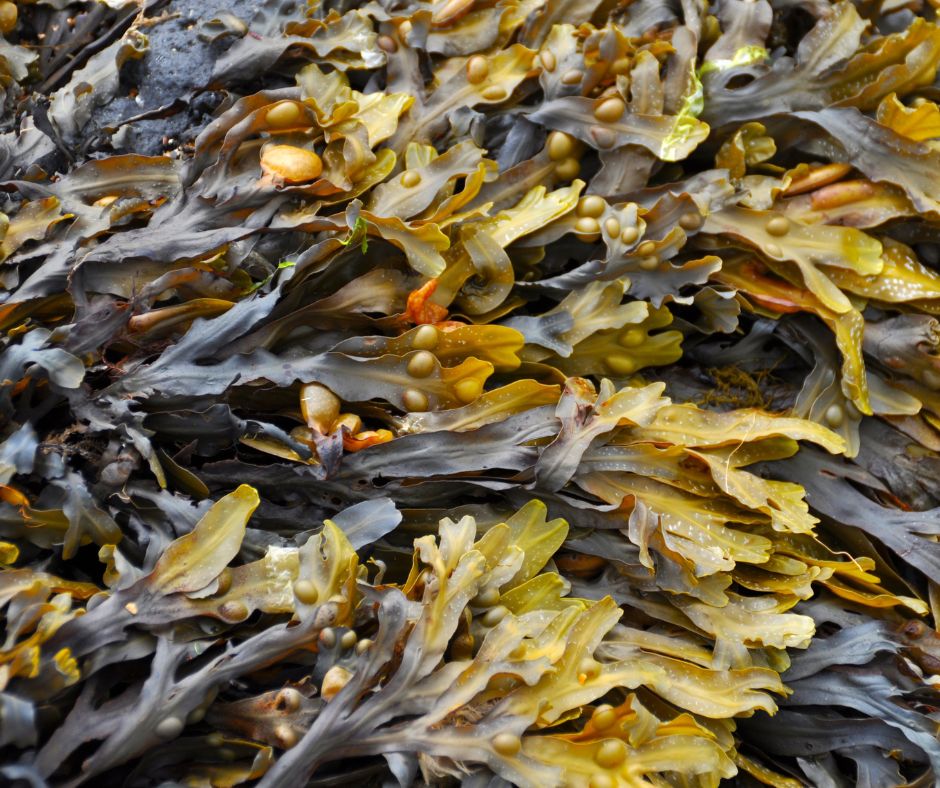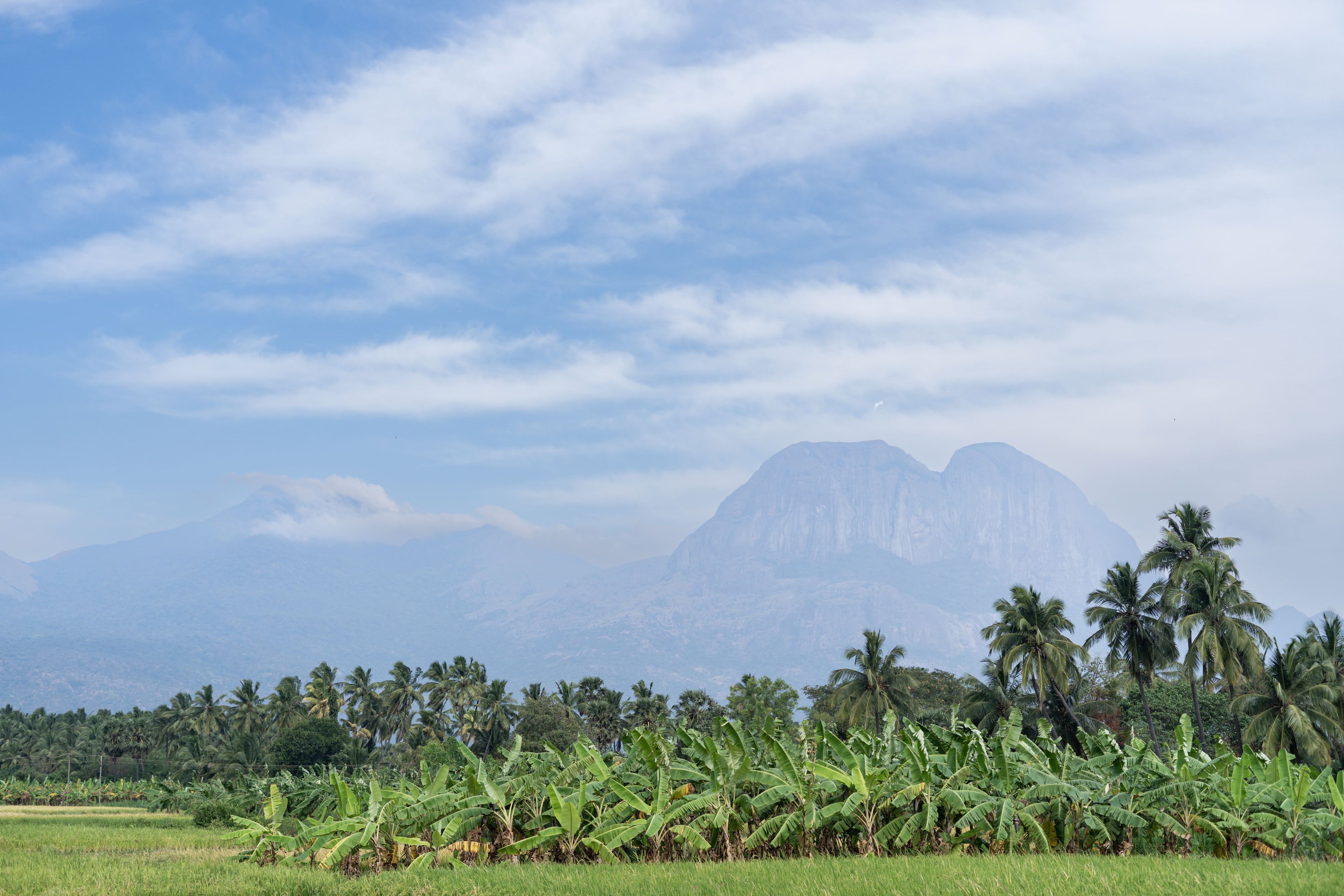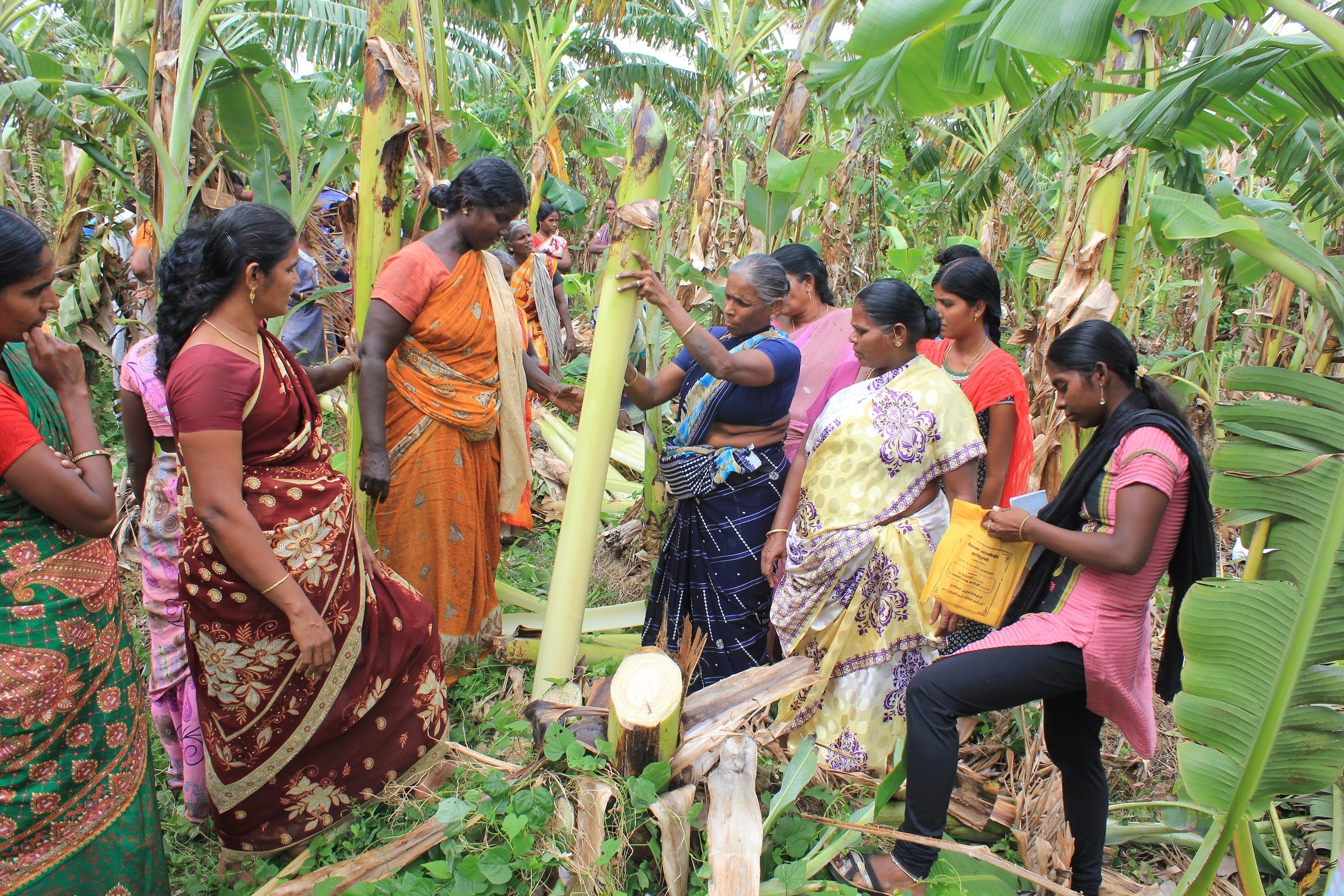Sustainbility = Transparency
The Problem
MUSA intimates addresses two significant societal issues. First, there's a considerable waste stream generated by banana production that often goes unnoticed. Second, there's a broader problem in the clothing industry related to the sourcing and use of materials, leading to environmental concerns and ethical problems. These challenges are vast and complicated, for which MUSA wants to develop a relevant but unfortunately not a complete solution.
The Solution
Our approach involves crafting intimate wear from waste streams, with a specific focus on utilizing banana textile. Let's break this down: Banana production results in a substantial amount of waste that can contribute to environmental concerns. By repurposing these waste materials, we strive to make a positive impact on two fronts: environmental and ethical. This means creating circular products that don't add to the pollution associated with the fashion and food industries. While our initial research centered on banana fibers, our commitment extends to ongoing exploration, where we aim to develop new products using innovative textiles and technologies.
We're working on making underwear from materials that would otherwise go to waste. This not only helps the environment but also supports ethical practices in the fashion industry. Our goal is to contribute to a positive change by creating products that are environmentally friendly and socially responsible.
Why aren't we a 100% sustainable?
We believe in creating underwear that not only feels good, but also lasts. Sustainability, for us, goes beyond using natural materials. It's about making products that are both comfortable and durable, ensuring the best quality for you.
When it comes to the elastics in our underwear, we've made a thoughtful choice. Instead of using polyester, we opt for elastics made from banana viscose yarn and rubber. While we strive to find alternatives to polyester wherever possible, it's not always easy.
For underwear to fit well, the fabric needs to be stretchy. That's why we use a polyester yarn; it provides the right amount of stretch and ensures the underwear maintains its shape even under tension. This choice allows you to enjoy our items over and over again.
Our commitment to sustainability goes beyond materials. We're constantly exploring new developments in the fashion industry to make our items more recyclable. It's part of our ongoing effort to bring you not only comfortable and durable underwear, but also products that contribute to a more sustainable future.
SLOW FASHION
In embracing slow fashion, we've adopted a 'made to order' approach, setting a maximum limit on the items we sell. Once this limit is reached, we close the store and commence production. This ensures efficient material use and helps reduce waste and dead stock in the fashion industry.
Our 'made to order' system not only reflects a commitment to sustainability but also conveys a message about the time and craftsmanship invested in each piece of clothing. Slow fashion emphasizes the creation of high-quality, long-lasting garments that withstand the test of time, even if it means a slightly longer wait for new items to hit our shop. We value this unhurried approach, taking the time needed for our products while the world rushes by.
One of our objectives is to develop a biodegradable product, contributing to a fully circular product life cycle. This process takes time, and we collaborate with partners to research ways to create intimate wear with minimal environmental impact.
The journey of our first collection:
Our Partners
Our MUSA Collections wouldn't be possible without our partners!

Banana Fabric
Our banana fabric consists of 39% banana fiber, 59% organic cotton, and 2% elastane. We incorporate this unique blend into the MICA & MAIN top, available in avocado green and lilac.
The banana fiber originates from the Philippines, sourced from the Abaca banana plant, considered a weed in the region. To maintain biodiversity, these plants must be cut down, making it beneficial to repurpose this waste material into our fabric.
The organic cotton used in our banana fabric comes from India and is certified with a Transaction Certificate (TC). This certificate ensures that the goods in a shipment from one company to another meet specific standards.
The 2% elastane in the textile adds extra flexibility, enhancing the fit of the clothing and allowing the fabric to return to its original shape after stretching. We understand the environmental impact of elastane, and that's why we encourage our customers to bring back their clothes when they're no longer in use. By doing so, we can give these items a second life, preventing them from ending up in nature

Seacell Fabric
For this collection, we opted for a different material in crafting our MUSA undies, and our attention quickly gravitated toward the PYRATEX®seacell 11 fabric. Its softness, good stretch, and the interlock knitting structure provide a substantial feel. This fabric is composed of 20% seacell and 80% Tencel.
The 20% seacell is a cellulosic fiber similar to Lyocell. The process of creating seacell fabric begins with harvesting seaweed from the sparsely populated fjords of Iceland through a gentle, selective, and sustainable process. This method only removes the part of the plant capable of regeneration. Seaweed fiber is carbon-neutral, produced in a closed loop with no chemical waste released. The entire process relies on sustainable raw materials, conserving energy and resources.
The seaweed undergoes washing, drying, careful grinding, and addition to a wood cellulose NMMO solution. The positive properties of seaweed are permanently preserved within the final fiber, even after multiple washing cycles.
The remaining 80% of the fabric is Tencel®, certified under Standard 100 OEKO-TEX and produced in Austria. Tencel® is a renewable, wood-based fiber grown in natural forests and sustainably managed plantations, avoiding the use of chemical fertilizers. Almost 100% of the wood and pulp used in the PYRATEX® seacell 11 are FSC® or PEFC™ certified or controlled. Furthermore, the fibers are compostable and fully biodegradable in soil and marine conditions.
Take a look at our Banana Fiber research!
Our production
From the moment we receive our fabric from our trusted partners, your item is meticulously crafted right here in the Netherlands, ensuring a transparent and responsible production process.
In our atelier located in Utrecht, every step of the creation process is handled with care. Pattern cutting, tracing, and production are all performed in-house by our seamstress. Unlike mass-produced items made by industrial machines, our products are handmade. This means that every item is unique and won’t have the industrial finish you are probably used to. Please keep this in mind when receiving your product. This commitment to craftsmanship extends to our pledge to maintain an ethical work environment that prioritizes fairness and respect.
Our dedication to sustainability extends to the very fibers of our products. All our yarns are sourced from Güttermann, ensuring the quality. Similarly, our labels, an integral part of our garments, come from Wunderlabel and Dutch Label Shop, made out of recycled polyester. Reflecting our commitment to transparency.
When it comes to packaging, we are proud to say that ours are made of 60% recycled materials and biodegradable. We believe that every aspect of our brand should reflect our commitment to minimizing our environmental impact, and that includes the materials used to package and deliver our products to you.
In our ongoing efforts to promote a circular economy, we are actively working on creating an option for you to recycle your products in the future. We will update you as soon as this is ready! Our goal is to provide an inclusive and responsible approach to fashion, from the initial stages of production to the end of the product life cycle.
Thank you for joining us on this journey towards a more sustainable and ethical future. Together, we can make a positive impact on the world of fashion.


